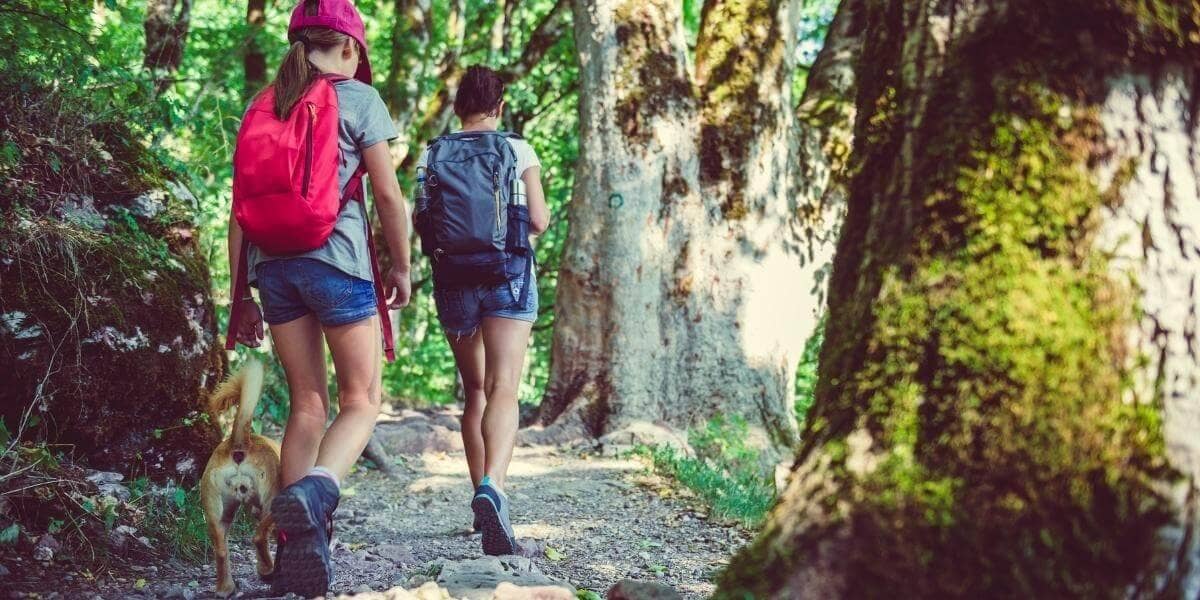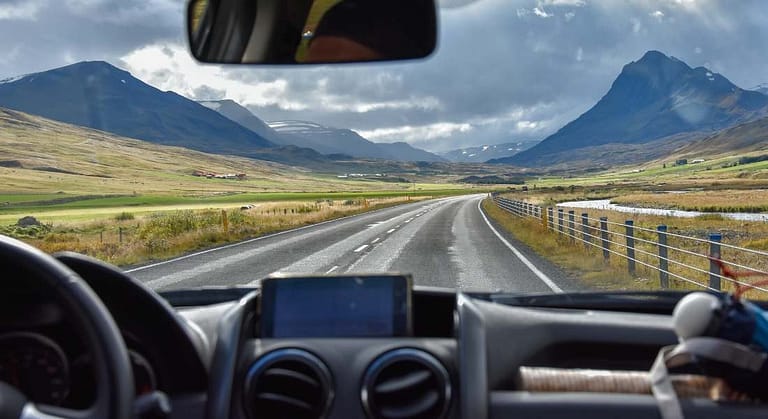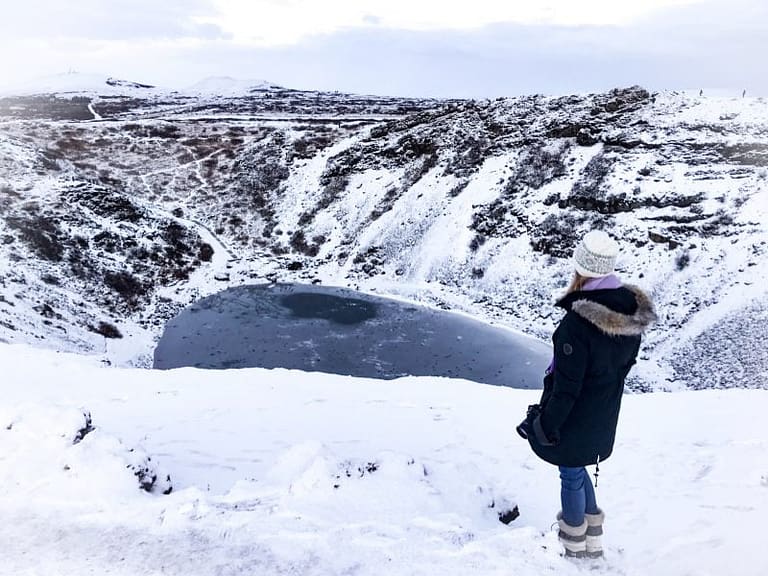10 Essential hiking tips for beginners
Getting outside can be very rewarding and beneficial to our health. It’s not surprising that hiking has gained popularity lately as we all yearn to get outside. As with any outdoor activity, there are a few things you should know before you head outdoors. This post covers hiking tips for beginners to help you get started.
I’ve always considered myself a casual hiker who loves to explore nature. Whether I’m with family, friends or my dog, getting outside is an opportunity to recharge and disconnect. Most of the hiking I do is during the day. I’ve never backpacked through the wilderness for days, nor have I scaled mountain peaks or spent months in the wild.
If that’s something you want to get into, I applaud you. The best thing about hiking is that there are many levels and styles that fit all abilities. Unleash your inner hiker and get ready for the outdoors.
Affiliate Disclosure – This post contains affiliate links. If you make a purchase through these links, I may earn a commission. This doesn’t affect your purchases or any fees you may pay for the product or service. Read more in my DISCLAIMER.

10 Hiking tips for beginners
In this post, I share my tips for beginner hikers, including information on what you should be aware of when planning to go hiking, how to prepare and what to pack, the things you need to carry with you during your hike as well as safety tips.
1. Plan ahead
Research where you’re hiking ahead of time. Get familiar with the terrain of your hiking destination, such as steep slopes or cliffs that cannot be seen from a distance. Check out the route online before you go and consult the trail map when you get there. Knowing where you are hiking will prevent you from getting lost. Pick hiking trails that are suitable for your hiking level. The distance is just as critical as the difficulty.
Also, check the weather forecast at the destination before you head out. Have alternate routes in mind if one path is not passable due to weather conditions (e.g., mudslides, fallen trees). Hiking in extreme conditions can be dangerous and require special skills and equipment.
Certain hiking spots require parking permits or entrance fees. You might also need to book your slot ahead of time. Check the requirements ahead of time to avoid disappointment.
2. Dress appropriately
One of the biggest mistakes I see in beginner hikers is showing up with the wrong attire. I have seen people on trails in tight jeans, short skirts and flowy dresses that are more of a fashion statement than practicality. Wearing proper clothes will make your hike more enjoyable and safer for you.
Clothes should be comfortable and allow for unrestricted movement. Aim for breathable fabrics that dry quickly, wind-proof and water-resistant clothes. Dress appropriately for the weather conditions on your hike. Wear layers to take them off if it gets too hot, or add them if it gets cold. Bring an extra layer just in case it turns out to be colder than expected. You might also need a hat and gloves, depending on the weather.

3. Wear proper footwear
You should never hike in flip-flops or strappy sandals. Hiking shoes or boots offer a better grip when hiking up rocks or trails that may be slippery such as those covered in ice, mud, dust or leaves. They are made to protect your feet from the elements and prevent injuries. You don’t want to stub your toe or get bit by a snake.
Hiking with the right shoes and socks will help you have fewer blisters and sore feet. There are different styles and brands of hiking footwear out there, so make sure you find the right fit for you. I prefer my hiking boots to be light, waterproof and sturdy, and I always go for those that cover my ankle to prevent injuries.

4. Pack the right gear
Packing the right gear is essential for all hikers of all abilities. What you bring in your backpack can easily save your life or that of someone else. Some of the essentials include snacks, water, sunscreen, bug spray, sunglasses, lip balm, and extra clothes. If you’re hiking in a very remote area, it’s good to carry a basic first-aid kit and a flashlight.
No matter where you are, make sure you have a charged phone and a map of the area. A compass and a printed map are also great if you know you’ll be in remote areas with no cell towers or other hikers. Bring any medications you might need and wear a medical ID bracelet if you plan to be away for long.
5. Stay hydrated
Hiking is a physical activity that can be demanding on our bodies. Keeping hydrated is a sure step to making your hike enjoyable and safe. How much water you bring depends on the weather, distance and difficulty of the trail, your fitness level, size and how much you’re carrying.
You’ll need more water on hikes in hot weather, where there is no water source, or the water isn’t safe to drink. Deciding how much to bring with you should depend on how long you’re be gone, the weather and conditions. This also comes with experience and knowing how your body responds to hiking activities. When in doubt, start with a litre of water and adjust accordingly.

6. Don’t overestimate your abilities
It might be tempting to hike an exciting trail you found online, but make sure it is appropriate for your skill level. Just because someone else makes it look easy, it might not be easy for you, especially if you’re new to hiking.
Start hiking at a comfortable pace. Pushing yourself too hard will give you very sore muscles making it difficult to continue. It can also be dangerous. Overestimating your abilities can put you in physical danger, and you can get hurt, lost or endanger those around you. The good news is that the more you do it, the better you get at it. We all must start somewhere.
7. Keep track of time
Hiking is a great way to disconnect and recharge. Being surrounded by nature can be calming and peaceful, but it can also make us lose track of time. You want to give yourself enough time to return before it gets dark, especially when you’re not familiar with the area and have not planned on staying overnight.
Knowing how long you’ve been hiking and how far you are from where you started can also come in handy if you need to head back when the weather turns inclement or you need assistance.

8. Stretch before and after hiking
No matter your activity and fitness level, it’s a good idea to stretch your muscles before and after your hike. Even a light hike can strain your muscles, especially if you’re not used to walking so much. You might not feel the workout right away, but you will the next day.
Stretching is also great when you’ve been carrying a backpack during your hike. Our bodies have become so used to sitting that we forget all the other muscles that get activated when we hike. Your legs, arms, back, hips and neck need additional stretching to avoid strain and injury.
9. Leave no trace
There is nothing more annoying than trash. Unfortunately, even in the wilderness, you’ll find garbage left by people. Don’t be that person. Leave everything the way you found it, and don’t damage your surroundings. Clean up after yourself (and your pet), and don’t leave anything behind.
Garbage can also be dangerous to wildlife. Animals looking for food can get sick from any leftovers or injure themselves trying to get to them. I always bring an extra plastic bag and gloves so I can pick up litter when I hike. It’s something I’m teaching my niece and nephew to do as well. It doesn’t take a lot of effort, and it’s a way to make sure we can all enjoy nature.

10. Stay safe
This is one of those hiking tips for beginners that applies to everyone, not just beginner hikers. Staying safe ensures that you enjoy the experience and will return. Here are the essential hiking safety tips:
- Always let someone know where you’re going.
- Be aware of trail conditions before hiking.
- Weather can impact hiking conditions, so plan ahead.
- Bring a first aid kit on your hike for any unexpected injuries or accidents that may happen while hiking.
- Hike with a friend or your dog for company and safety.
- Make sure your cell phone is fully charged before hiking.
- Don’t feed wildlife and approach any wild animals.
- Stay on marked trails.
- Make sure to stay hydrated.

from Beginner hikers to pros
These hiking tips for beginners are intended for those wanting to get into hiking. Start moderately with paths and trails in your local parks and go from there. Consider joining a local hiking group to connect with like-minded individuals and meet new hiking friends to hit the trails with you.
Hiking is an enjoyable activity that offers many positive benefits. Once you get into it, you’ll find yourself doing it more often. After you master the basics and get used to the physical challenges, you’ll want to explore more challenging trails and destinations. You might want to invest in additional equipment like walking poles and camping gear. Upgrade your equipment and tools based on your needs and how often you hike.
Most important of all the hiking tips for beginners: get out there and have fun. Remember to share this post with friends who love nature walks or outdoor adventures.







